Columbia’s Chapter of the National Society of Black Engineers, Past and Present
Generations of alumni gathered to commemorate the history of Columbia’s NSBE chapter — and to chart a bright future for Black alumni.
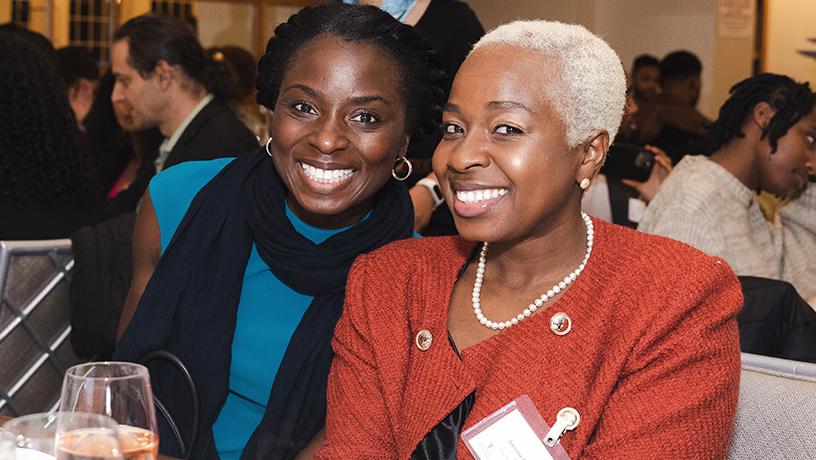
Alumni and guests reunite to celebrate the founding of Columbia’s NSBE chapter. Credit: Kevin Dale/Columbia Engineering
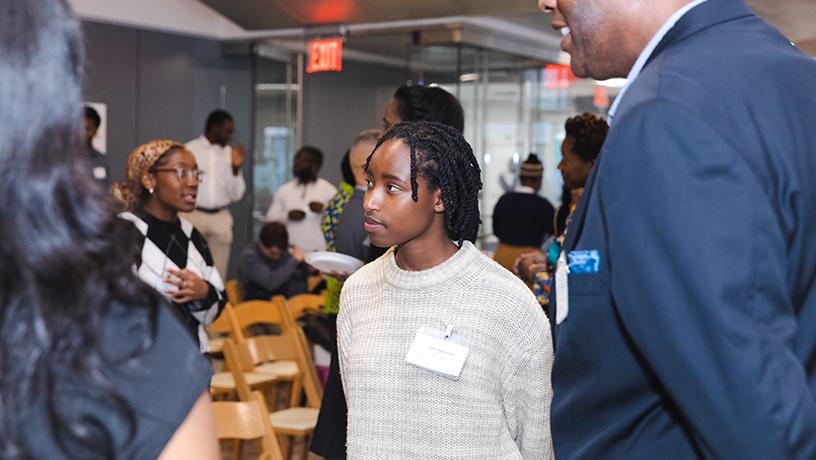
Alumni and guests reunite to celebrate the founding of Columbia’s NSBE chapter. Credit: Kevin Dale/Columbia Engineering
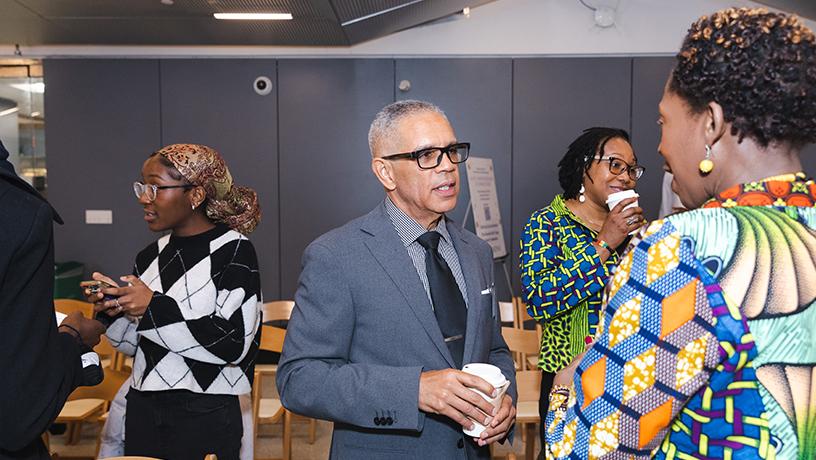
Alumni and guests reunite to celebrate the founding of Columbia’s NSBE chapter. Credit: Kevin Dale/Columbia Engineering
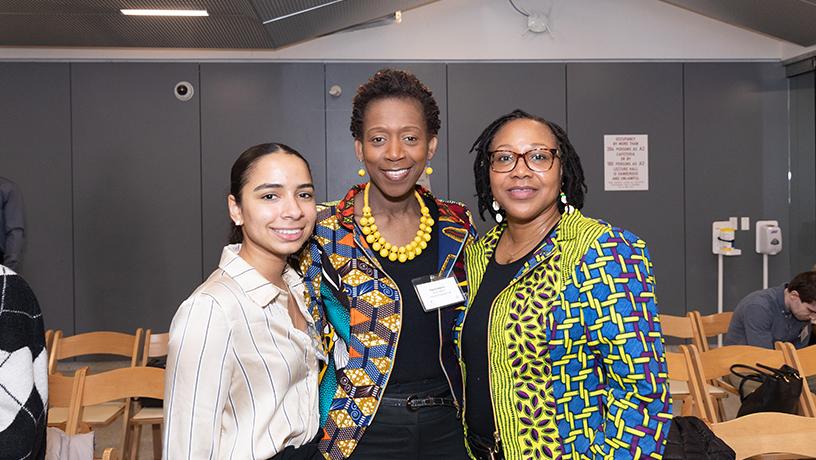
Alumni and guests reunite to celebrate the founding of Columbia’s NSBE chapter. Credit: Kevin Dale/Columbia Engineering
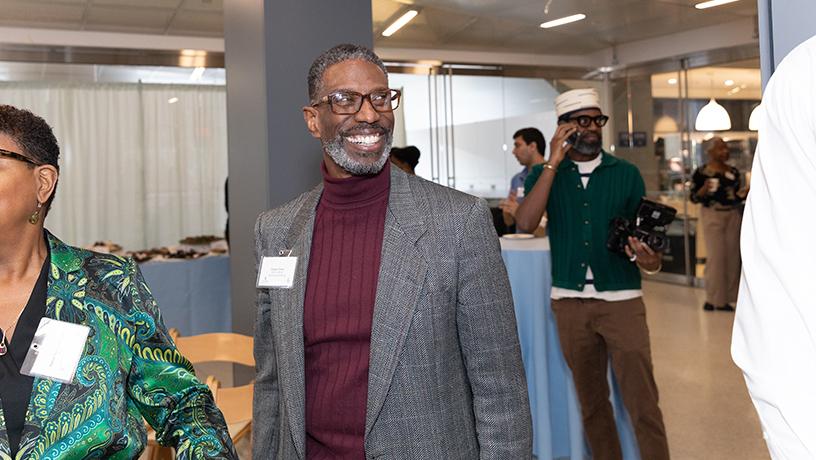
Alumni and guests reunite to celebrate the founding of Columbia’s NSBE chapter. Credit: Kevin Dale/Columbia Engineering
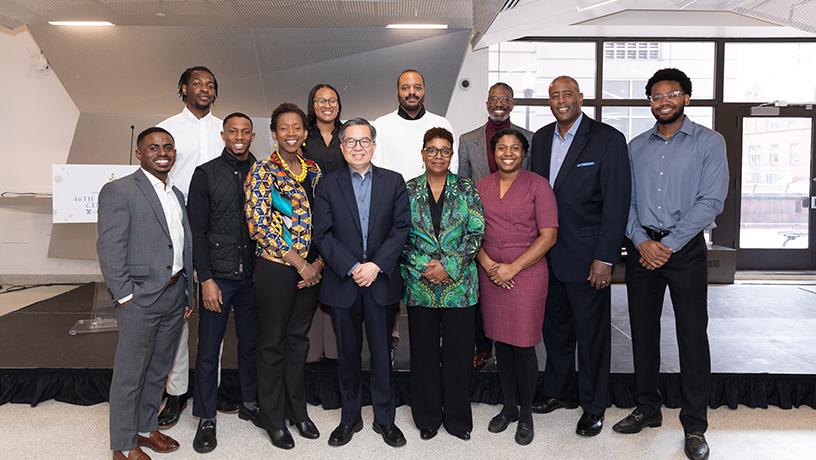
Alumni and guests reunite to celebrate the founding of Columbia’s NSBE chapter. Credit: Kevin Dale/Columbia Engineering
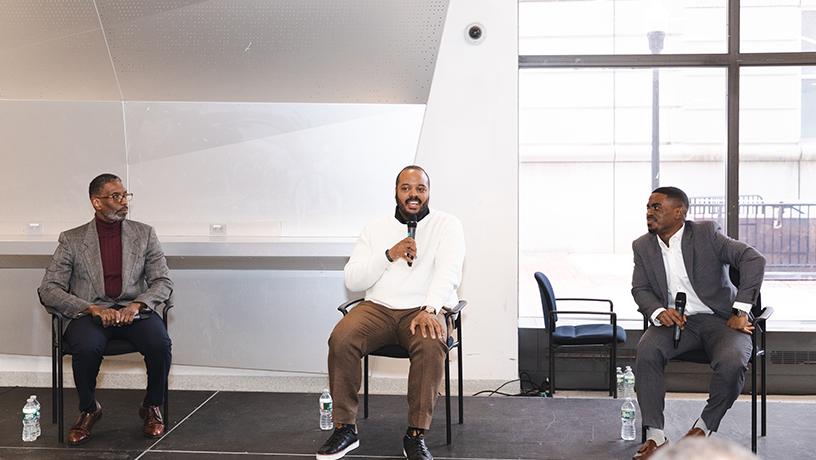
Alumni and guests reunite to celebrate the founding of Columbia’s NSBE chapter. Credit: Kevin Dale/Columbia Engineering
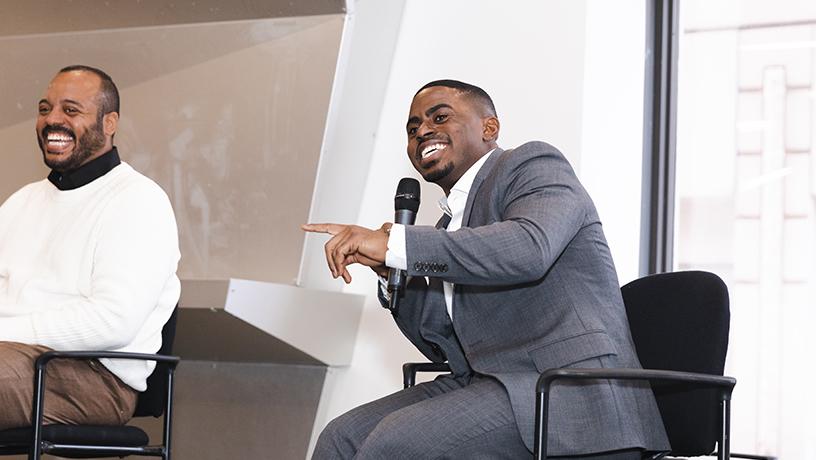
Alumni and guests reunite to celebrate the founding of Columbia’s NSBE chapter. Credit: Kevin Dale/Columbia Engineering
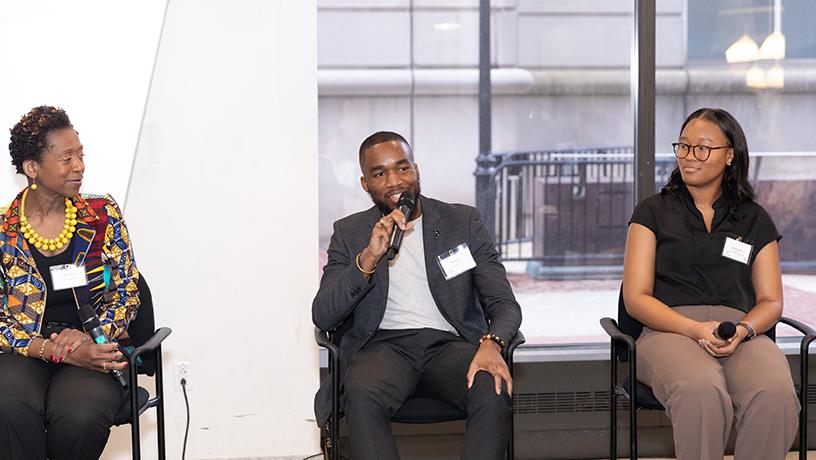
Alumni and guests reunite to celebrate the founding of Columbia’s NSBE chapter. Credit: Kevin Dale/Columbia Engineering
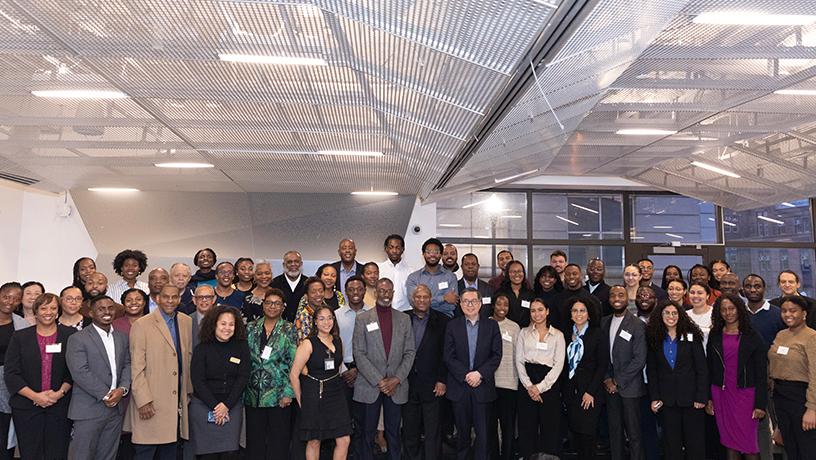
Alumni and guests reunite to celebrate the founding of Columbia’s NSBE chapter. Credit: Kevin Dale/Columbia Engineering
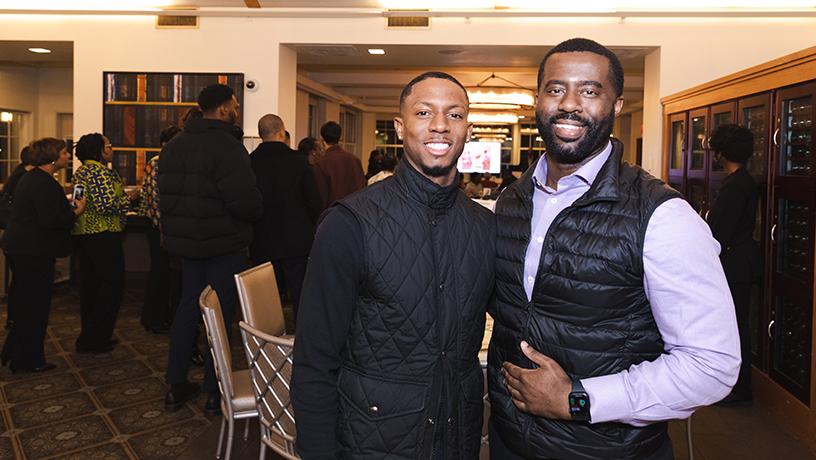
Alumni and guests reunite to celebrate the founding of Columbia’s NSBE chapter. Credit: Kevin Dale/Columbia Engineering
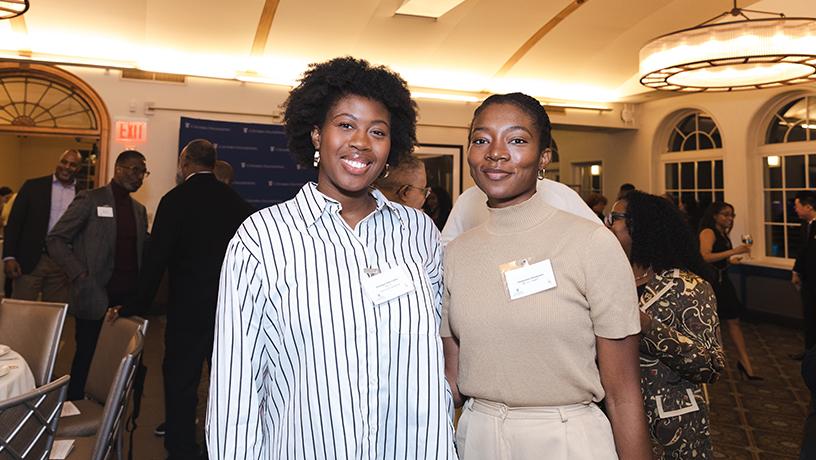
Alumni and guests reunite to celebrate the founding of Columbia’s NSBE chapter. Credit: Kevin Dale/Columbia Engineering
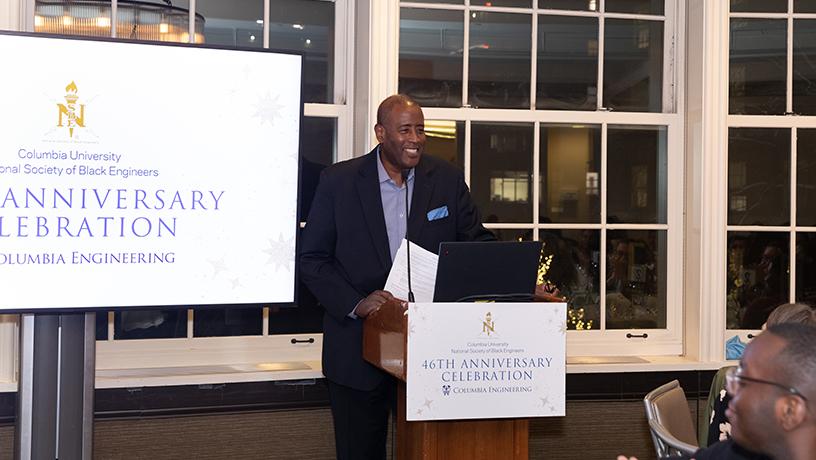
Alumni and guests reunite to celebrate the founding of Columbia’s NSBE chapter. Credit: Kevin Dale/Columbia Engineering
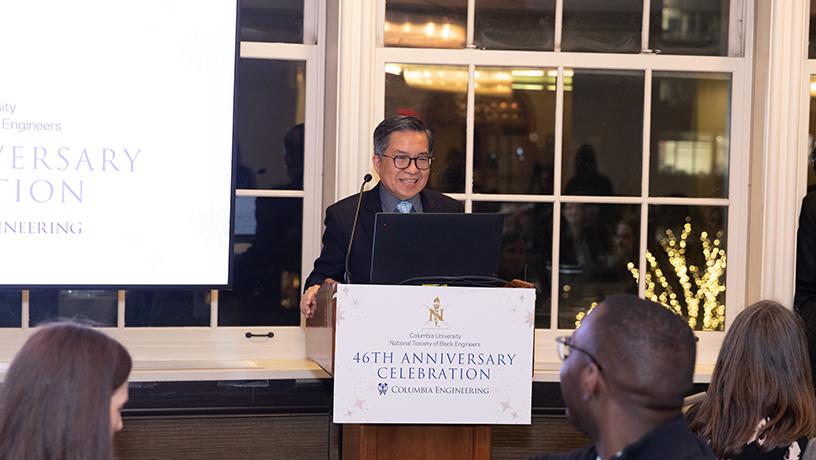
Alumni and guests reunite to celebrate the founding of Columbia’s NSBE chapter. Credit: Kevin Dale/Columbia Engineering
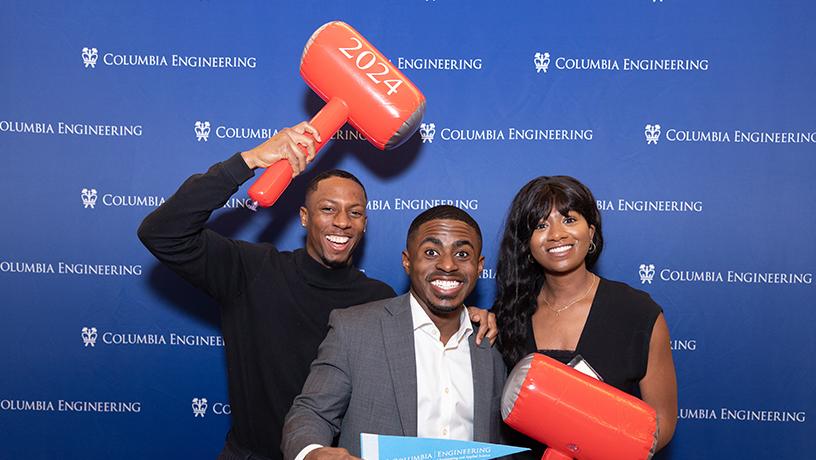
Alumni and guests reunite to celebrate the founding of Columbia’s NSBE chapter. Credit: Kevin Dale/Columbia Engineering
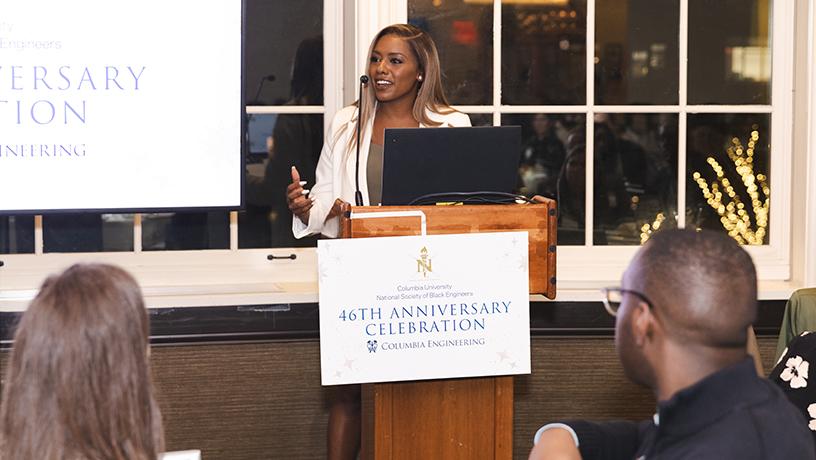
Alumni and guests reunite to celebrate the founding of Columbia’s NSBE chapter. Credit: Kevin Dale/Columbia Engineering
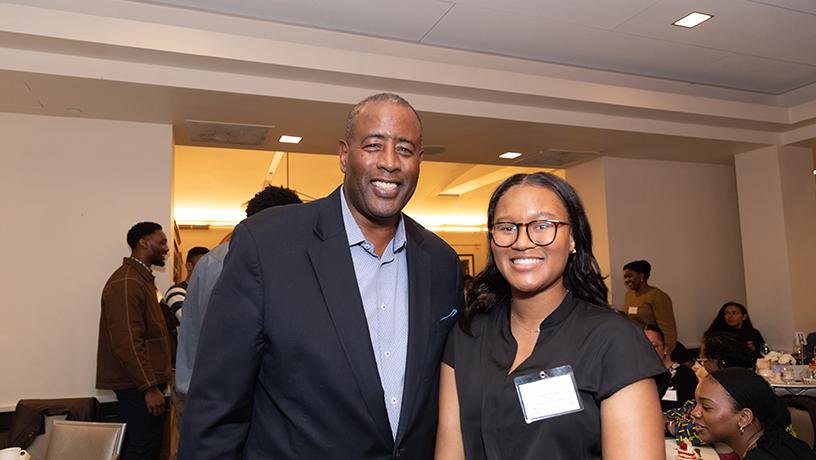
Alumni and guests reunite to celebrate the founding of Columbia’s NSBE chapter. Credit: Kevin Dale/Columbia Engineering
More than 100 engineers gathered in Morningside Heights Feb. 23 for the first-ever reunion of Columbia Engineering’s Black alumni. In celebration of the 46th anniversary of the School’s chapter of the National Society of Black Engineers (NSBE), the group toured laboratories, participated in panel discussions, and fellowshipped at a reception and dinner at the University’s Faculty House.
In remarks during dinner, the chapter’s inaugural president, Greg Tarver BS‘78 MS’82, explained the motivation that led the co-founders to establish the organization, which still thrives today.
“This organization was critical for those of us who, 46 years ago, were responding to an environment that frankly was not always so welcoming,” he said. “We didn't always get invited to the study groups that some students had. We dealt with microaggressions and, at times, overt aggressions. This chapter was a place of connection, encouragement, and support that helped us to make it through.”
Tarver’s remarks were a poignant backdrop for the remarkable alumni achievements celebrated during the event. Shih-Fu Chang, Dean of Columbia Engineering, recognized the recent election of Lanny Smoot BS’77 MS’78 to the National Inventors Hall of Fame. The evening’s keynote speaker, Fatima Dicko BS’12, began her career as a lauded engineer in the corporate world before launching a startup and raising millions of dollars in venture capital funding. Tarver developed technical systems that enabled the production and broadcast of everything from daytime network television to the Olympics.
George Ellis BS’79, an inaugural member of Columbia’s chapter and current member of the School’s Board of Visitors, described the event as both an overdue “homecoming” and the starting point for an alumni group that will provide support for the School’s Black students and alumni long after they graduate.
Ellis also expressed excitement for a 50th anniversary celebration in 2028.
Creating a place to help Black students thrive
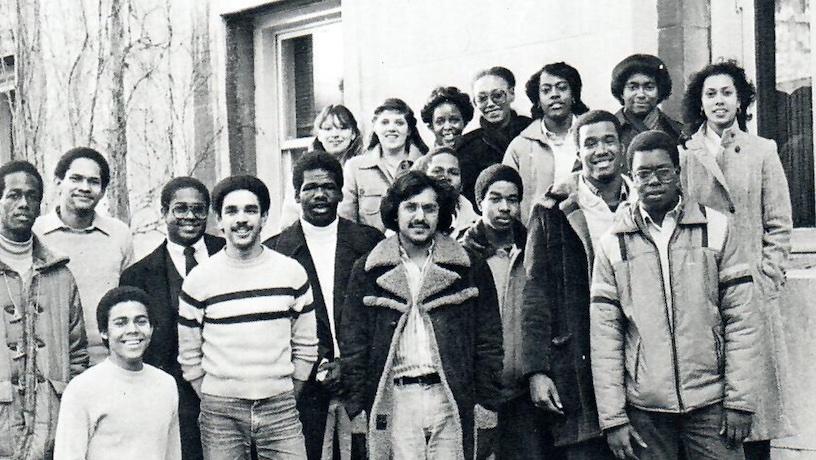
Columbia NSBE chapter, 1981. Credit: The Engineer 1981
In one of the day’s panel discussions, “NSBE Origin to Now,” alumni discussed the beginnings of the chapter and charted its course over the decades.
Daneen Cooper BS’80, who served as the chapter’s third president, represented the founding generation.
“You had a lot of first-generation Black folks coming to engineering,” she said. “It was something most people weren’t familiar with, so you couldn’t go home and talk to your family about what you were doing. They didn’t understand why you had to be up at three o’clock in the morning doing problem sets.”
She recalls there only being one or two Black students in many courses.
“You were isolated. I’ve heard that word so many times today. You were on your own,” she said. “We found that we needed to do something different.”
The answer, she explained, was building a community that could stand the test of time.
One of her classmates was familiar with NSBE, which had been founded at Purdue University in 1975. Cooper and several other students decided to form a chapter of the organization at Columbia. After seeking advice about how to navigate the institution to get funding, a delegation of students attended the NSBE national conference in 1977. The next year, Cooper, Tarver, and Ellis attended the conference in Columbus, OH.
“Between those two conferences, we had the tools to put together a viable organization,” she said.
Cooper said the founders envisioned three main functions. First, they wanted to create a safe, supportive space where Black students could openly discuss problems they were facing. Second, they offered academic support by compiling lab reports, homeworks, and exams for students. “If you didn’t have a study group, that could be your study group,” she said. Third, the NSBE chapter would enable job opportunities for its members, which it did through activities such as hosting a job fair in Low Library and binding its members’ resumes into a book the chapter sold to corporate recruiters.
As the founding generation graduated and set off on their careers, new generations of students carried the chapter’s mission forward in time.
“Coming to Columbia, as a Black young woman, was intimidating,” said Angela Edwards BS’92 MS’97. “In the classroom you may have been one of the only Black students or women, so it was good that when you left the classroom, you could find other students who looked like you, who understood what you were going through, to get that support.”
NSBE today
Today, Columbia’s NSBE chapter has about 40 members. Following a couple of years during the pandemic when nearly all student activities occurred online, the members frequently host events and facilitate volunteer activities at schools in Harlem.
Current co-president Amanda Jenkins BS’25 said the group also hopes to deepen relationships with alumni.
“We have plans to host more alumni panels and strengthen the alumni network,” she said.
Throughout the day, alumni and current students continued returning to themes of challenge, resilience, and community.
For Edwards — and for many others who attended the event — the chapter was more than a club. “NSBE was family,” she said.
